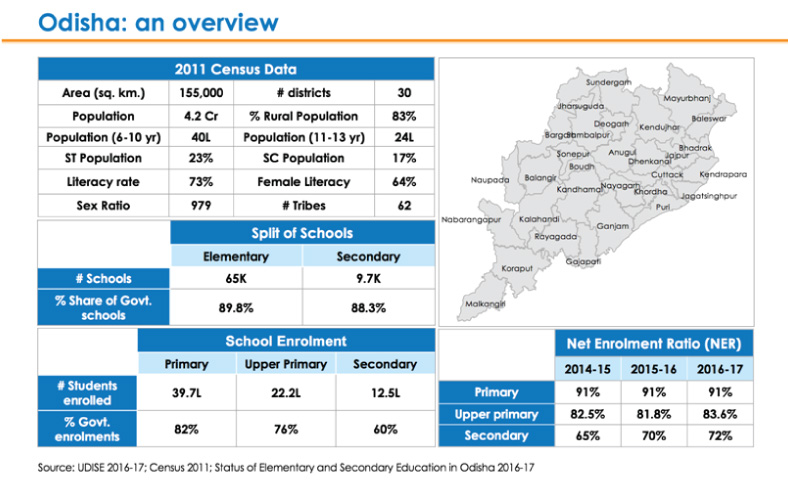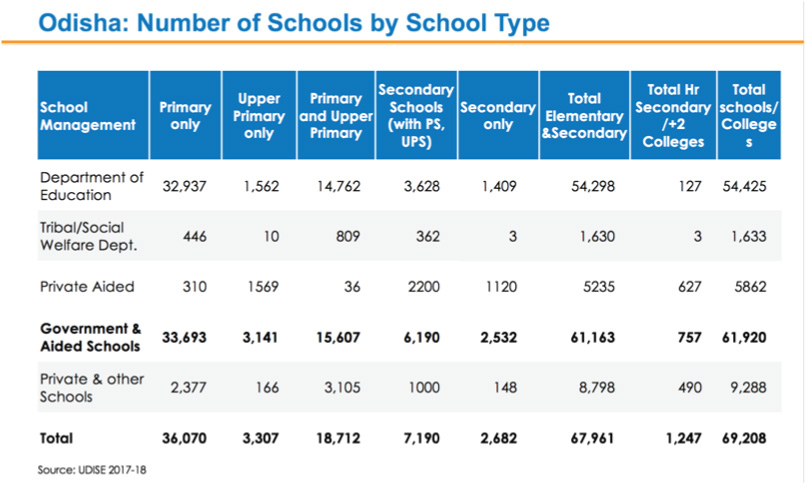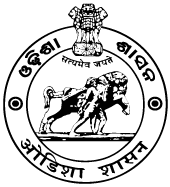Mo School Vision
Provide a philanthropic platform for Alumni to contribute and catalyze a healthy, inclusive and creative environment to groom a new generation of dreamers, doers, makers, growers, artists, writers, thinkers, designers, scientists, innovators, leaders, explorers and entrepreneurs.
Mo School Mission
Reach out to anyone who connects to schools of Odisha in India and abroad, and leverage emotional connect of alumni to their alma maters, inspire community action, facilitate stakeholder participation, collaborate with various non-profits working in the area of education and child development to:
- Address needs of school-going children of varying ability, caste, gender, religion, linguistic-origin and ethnicity.
- Enable schools to provide appropriate creative, technological, physiological and psycho-social support right from the early formative years to help children blossom and achieve their full potential as they grow.
- Support schools to help children evolve into happy, healthy, wholesome individuals who can live in harmony with their environment and go on to do wonderful creative and constructive things for their community, state, nation and the planet-at-large.
Mo School Genesis
The State Government of Odisha has received expressions of interest from alumni and others who are keen to contribute to their alma maters i.e. schools that they or their relatives attended. The Honourable Chief Minister of Odisha Shri Naveen Patnaik launched the Mo School campaign on November 14, 2017 – Children’s Day – in response to this philanthropic interest from alumni of Odisha schools residing in India and abroad.
Mo School is an initiative that aims to create a platform for people to connect, collaborate and contribute to revamping the government and government-aided schools in Odisha. A robust and vibrant school education system holds the key to a brighter future for the state and its people. Odisha needs to groom its school children to be successful citizens that shape the emergence of a progressive and cosmopolitan state leading it to be the most developed one in the nation.
Mo School is a first-of-its-kind initiative in the country – a citizen-government partnership in which the former leads in designing the programme, defining its goals and directing its implementation.
The government provides operational and financial support to the programme while the Mo School Executive Body runs the everyday affairs supported by a Governing Council and a Board of Advisors, both of which comprise, among others, thought leaders, eminent educationists, social scientists, and notable people from the fields of art, architecture, design, advertising, communication film-making, literature, science, technology, sports and public administration.
Mo School Goal
The overarching goal of Mo School is to:
- Foster and facilitate volunteerism to give back to almamaters.
- Provide a platform for individuals (including, but not limited to, alumni), associations, social impact organisations, foundations, philanthropists, companies and others to contribute to the development of the school ecosystem in Odisha.
- Leverage the experience, success and influence of the alumni and its vast worldwide network to impart best practices in school education.
- Create an enabling environment to harness the vast human resources and intellectual capital of the State and its people.
- Equip students with the physical and mental infrastructure required for multi-faceted development such that they can evolve into wholesome individuals empowered to pursue any vocation, profession or avocation that they are passionate about.
- Groom school children to become dreamers, doers, makers, growers, explorers, experimenters and entrepreneurs.
Odisha School Ecosystem
In Odisha, a total of 72,21,218 students are enrolled in schools for class I to X. Out of which, 37,16,883 are boys and 35,04,335are girls.
53,68,135 students study in Government schools. 12,77,770 students study in Private schools and another 5,75,313 study in Government-Aided schools. Of the total enrolled students, 13,87,576 belong to Scheduled Caste (SC) and 20,58,955students belong to Scheduled Tribe (ST) communities. 37,74,687 students belong to non-SC-ST category.
In Odisha, there are 2,84,464 teachers who teach Class I to X, out of which 2,07,102 are in Government and Government-Aided Schools.
There is a total of 67,961 schools (Class 1-10) in Odisha of which 61163 are government / government-aided schools, and the rest 6798 include private, central government and some un-recognized schools.


Schools Category:
(Class 1-5) Primary schools: 36070
(Class 1-8) Primary & Upper Primary: 18712
(Class 6-8) only Upper Primary Schools: 3307
(Class 9-10) Secondary Schools: 9872
All the schools are under administrative control of School & Mass Education Department except 1630 schools of SC & ST Development department. On the academic front, all elementary schools are under the Directorate of Teacher Education (TE) and State Council for Education Research and Training (SCERT), while the Board of Secondary Education (BSE), Odisha serves as the academic authority for all Secondary Schools.
Recently, 1247 Higher Secondary Schools / Junior Colleges were transferred to School & Mass Education department from Higher Education department of which 757 are government / government-aided.
In 2012, the Odisha government handed over the supervision of elementary schools to the Panchayati Raj institutions, while the administrative control rests with the S&ME department. In 2018, the government decided to entrust the construction, repair and maintenance of the various categories of schools to the following departments:
- Elementary schools: Panchayati Raj & Drinking Water Department
- Rural High-Schools: Public Works Department (PWD) (under Rural Development)
- Urban Schools: Municipal Corporations and other local bodies (under Housing & Urban Development)
These departments are allocated a special budget for carrying out the construction, repair and maintenance of their respective schools
Mo School Fund Raising + 2x Matching Grant
Funds for the implementation of the Mo School programme come primarily from two sources – contributions from Donors, and twice (2x) the amount of each such contribution provided from a dedicated initial Corpus Fund of Hundred Crore Rupees created for the purpose by the government.
Donors to Mo School may include, but not be limited to, individuals, group of persons or institutions. Donors may make contributions in terms of money, materials and/or services. Donors shall contribute to a general pool from which monies shall be utilized for the Mo School programme. However, provisions are made for donors, if they so desire, to indicate their preferences (by district or school or usage) for the use of their contribution.
Contributions shall not be limited to financial or material resources. Mo School aims at leveraging the intellectual capital and professional success of the alumni (and other individuals) via contributions in terms of architecting policy, design thinking, teaching methods, teacher empowerment, turning parents and local bodies into key stakeholders, creating knowledge societies, promoting democratic and progressive value systems.
Mo School Fund Utilisation
MoSchool funds could be used to cover diverse areas such as:
-
 Bridge infrastructural gaps e.g. hostels, labs, libraries, electronic equipment, internet, classrooms, furniture, toilets, clean drinking water, boundary walls, wheelchair ramps, etc.
Bridge infrastructural gaps e.g. hostels, labs, libraries, electronic equipment, internet, classrooms, furniture, toilets, clean drinking water, boundary walls, wheelchair ramps, etc. -
Improve mid-day meal and other nutritional initiatives.
-
Develop sports infrastructure and coaching support.
-
Ensure physical and mental well-being of students with annual health check-ups, doctor and counsellor visits.
-
Curate, create, acquire, deliver multi-disciplinary educational content (e.g. documentaries, films, talks) with guidance from experts and entities.
-
 Foster human and technology-enabled interventions to enhance the educational ecosystem and bring it on par with world standards.
Foster human and technology-enabled interventions to enhance the educational ecosystem and bring it on par with world standards. -
Address the problem of teacher absenteeism and lack of motivation through innovative training programmes, workshops, and awards.
-
Facilitate exposure visits, exchange programmes, participation in national and international sports/literary/cultural events.
-
Foster a maker and DIY (Do-It-Yourself) culture where students learn how to work with their hands to build, clean and fix things, whether in a lab or a workshop or their homes or school premises.
-
Encourage gardens in every school where students, teachers and parents collaboratively plant saplings and the students learn from local farmers and horticulturists how to tend to plants and trees.
-
Create a comprehensive database and build associated digital tools that will allow all stakeholders to review the progress and outcomes of the programme in real time and share their feedback.
-
Launch and manage campaigns aimed at promoting best practices in school education.
-
Organise workshops and seminars on Mo School and broader policy issues relating to school education.

